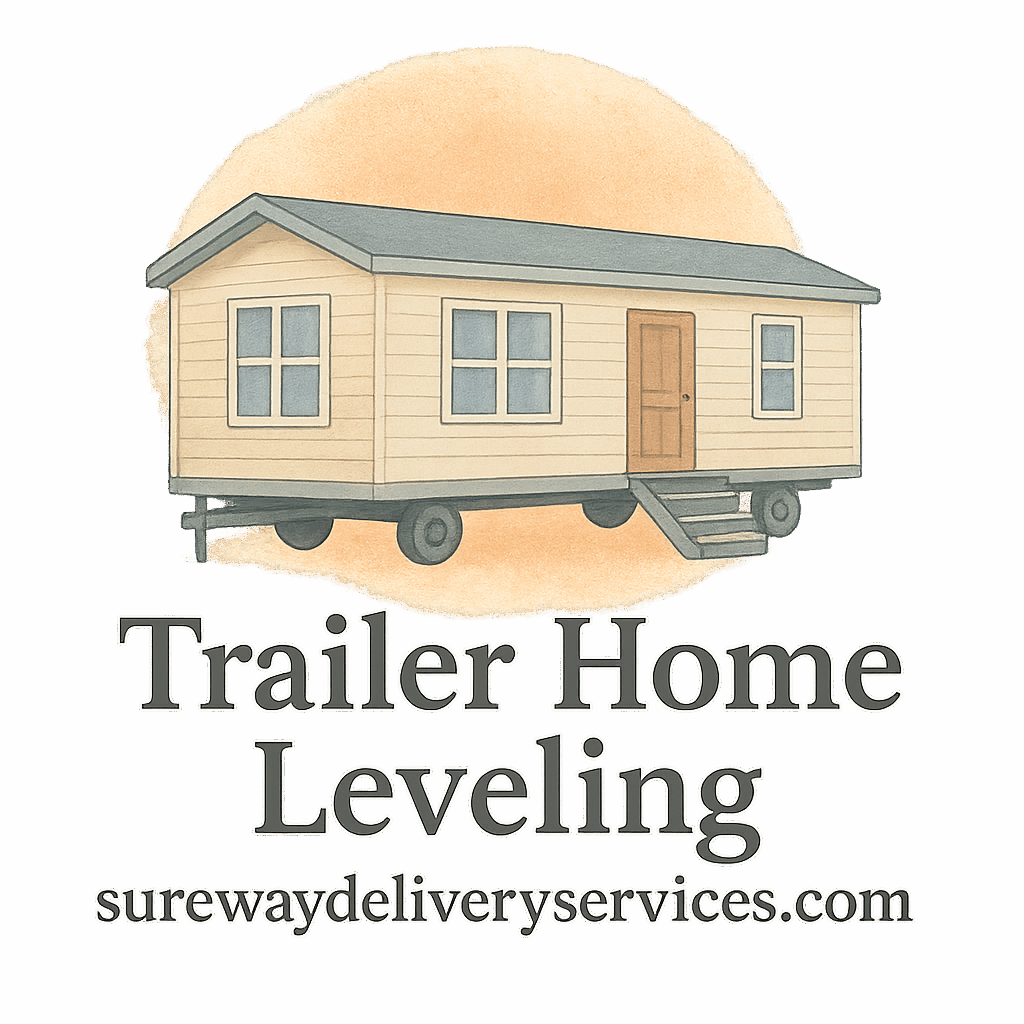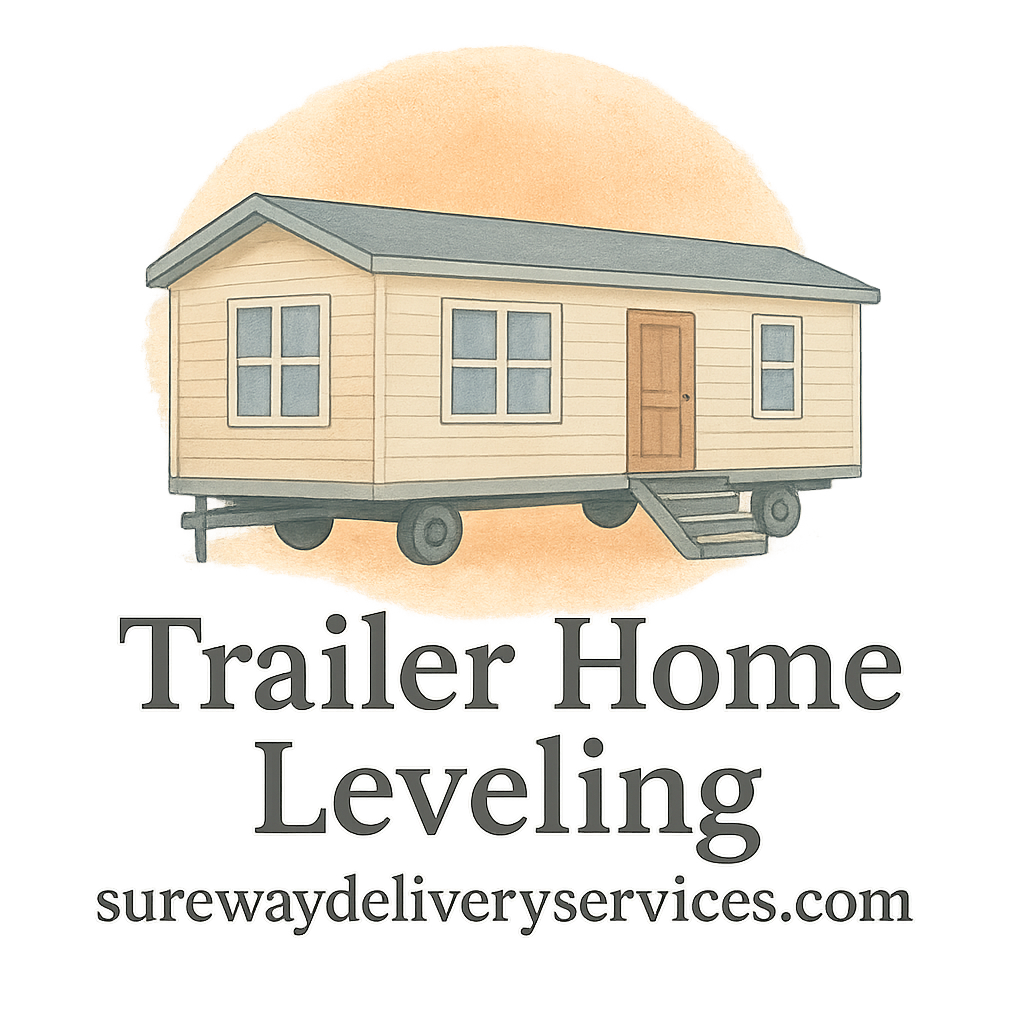Introduction
Ever had a mysterious leak in your trailer home and couldn’t quite figure out why it was happening? You’re not alone. Many trailer homeowners don’t realize that poor home leveling can be the sneaky culprit behind frustrating and costly water leaks. Think of your trailer like a seesaw—when it’s not balanced right, everything starts to go haywire. From cracked seals to stressed-out roofing, leveling issues can cause havoc, especially when it comes to water.
Let’s break down the five most common types of leaks caused by bad home leveling, how to spot them, and—most importantly—how to prevent them.
Understanding the Basics of Home Leveling
What is Home Leveling?
Home leveling refers to the process of making sure your trailer home sits evenly on its foundation. Over time, factors like shifting soil, weather changes, or even poor installation can throw your home out of whack. When that happens, everything from your doors to your water lines can suffer.
Want to understand the fundamentals first? Check out our introduction to trailer home leveling.
Why It Matters for Trailer Homes
Unlike permanent structures, trailer homes are particularly sensitive to balance. They rely on piers, jacks, and blocks to stay level. If these supports falter, so does the entire house—literally. Uneven leveling puts pressure on plumbing, roofing, windows, and more.
How Improper Leveling Causes Water Damage
The Domino Effect on Plumbing and Seals
Water always finds a way—and when your trailer is tilted, it often finds a way inside. Pressure shifts can break seals, shift pipes, and create pockets where water pools instead of draining.
Subtle Shifts, Major Leaks
You might not notice small shifts right away, but over time they stretch and crack critical joints. A tiny incline could mean a flooded bathroom later on.
Explore the methods and techniques of trailer home leveling to help prevent these types of issues.
Leak #1: Roof Leaks from Stress Fractures
How Uneven Weight Distribution Affects Roofing
Your roof is designed to carry weight evenly. When your home isn’t level, that balance is thrown off. Pressure builds where it shouldn’t, causing stress fractures or gaps in roofing materials.
Signs to Watch Out For
- Water stains on ceilings
- Sagging roof lines
- Loose shingles
- Puddles after rainstorms
More about this in our annual roof inspection checklist.
Leak #2: Pipe Joint Leaks
Why Pipe Connections Are Vulnerable
Pipes don’t bend—at least, they shouldn’t. When a trailer shifts, the rigid plumbing can crack at the joints or separate entirely. Leaks then spring up at connection points under sinks, behind walls, or beneath your floors.
Areas Most at Risk
- Kitchen and bathroom piping
- Water heater connections
- Underbelly insulation zones
Stay ahead with regular maintenance and inspection tips.
Leak #3: Wall Moisture Penetration
When Seals Shift and Crack
Wall panels and seams in a trailer are sealed tight to keep moisture out. But when the structure shifts, those seals crack or pull apart. That gives rain or humidity a golden ticket inside.
Mold and Structural Risks
Once moisture gets behind the walls, mold follows—and mold brings expensive repairs and health risks. Wall warping is another sign your home might be off-kilter.
Check our trailer maintenance resources to stay proactive.

Leak #4: Window and Door Frame Leaks
The Role of Frame Warping
A tilted trailer leads to warped door and window frames. Even a slight angle can cause the frame to pull away from the seal. And guess what? Water loves to sneak in there.
Energy Loss and Water Damage
Not only do you deal with leaks, but you also lose heating and cooling efficiency—costing you even more money in the long run. It’s a double whammy.
Learn more from customer success stories who fixed these exact issues.
Leak #5: Floor Seepage and Crawl Space Leaks
Gravity’s Role in Water Pooling
When a trailer isn’t level, water naturally pools at the lowest point—usually along the floor edges or under the house in the crawl space.
Long-Term Flooring Damage
Over time, this leads to soft spots, rot, and costly flooring repairs. Even worse? Structural damage to the undercarriage.
For tools to monitor floor leveling, explore our recommended leveling tools.
Preventing Leaks Through Proper Leveling
Maintenance and Regular Inspection
The best offense is a good defense. Regular leveling checks and a solid inspection routine can help you catch issues before they become disasters. Start with our checklist guide.
Tools and Techniques for Home Leveling
Want to DIY? You’ll need hydraulic jacks, levels, pier pads, and more. But be careful—it’s easy to make mistakes if you’re not trained. Browse our full guide on leveling methods for safer options.
When to Call in the Pros
What to Look for in a Service Provider
Not all leveling services are created equal. Look for licensed, insured, and well-reviewed providers. See if they offer post-service inspections too.
Need help finding the right one? Start with our guide on hiring a trailer home leveling service.
Average Costs and Service Packages
Costs vary depending on the complexity of the job. Budget between $450 and $1,200 for professional trailer home leveling.
More detailed cost breakdowns available on our budgeting and cost tips page.
Conclusion
Bad home leveling is more than just an inconvenience—it’s a gateway to costly leaks, water damage, and even structural failure. From roof stress to floor seepage, the consequences sneak up on you fast. But with proper maintenance, regular inspections, and professional help when needed, you can keep your trailer leak-free and level-headed.
Don’t let a small tilt turn into a giant headache. Keep your trailer on the level—literally—and protect your home from unwanted leaks.
FAQs
1. How can I tell if my trailer home is not level?
Check for doors or windows that stick, floors that feel sloped, or visible gaps in trim or paneling.
2. How often should I inspect my trailer for leveling issues?
At least once a year. See our annual maintenance tags for help.
3. Can I level my trailer myself?
Yes, but it requires the right tools and safety precautions. Consider our DIY trailer tips before starting.
4. What’s the average cost of fixing a water leak caused by bad leveling?
It ranges from $300 to $1,500 depending on severity. Leveling the home first is critical to stop repeat issues.
5. Are these leaks covered by insurance?
Sometimes, if the damage is sudden. But neglecting maintenance can void your claim.
6. Can bad leveling damage my insulation?
Absolutely. Gaps caused by uneven floors can break insulation seals, leading to higher energy bills.
7. What tools do I need for home leveling?
Hydraulic jacks, bubble levels, steel shims, and pier pads. Our tools guide has a full list.


